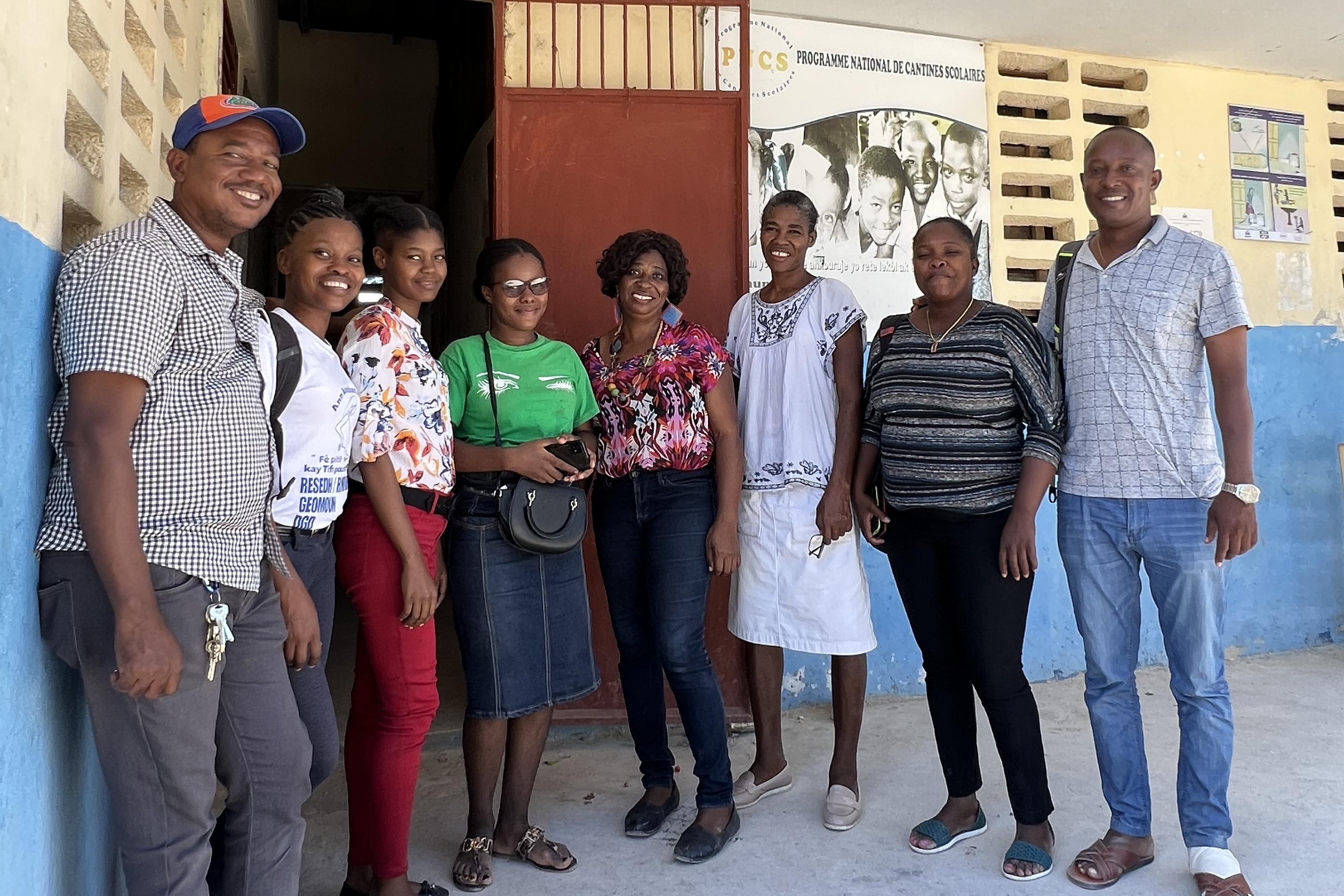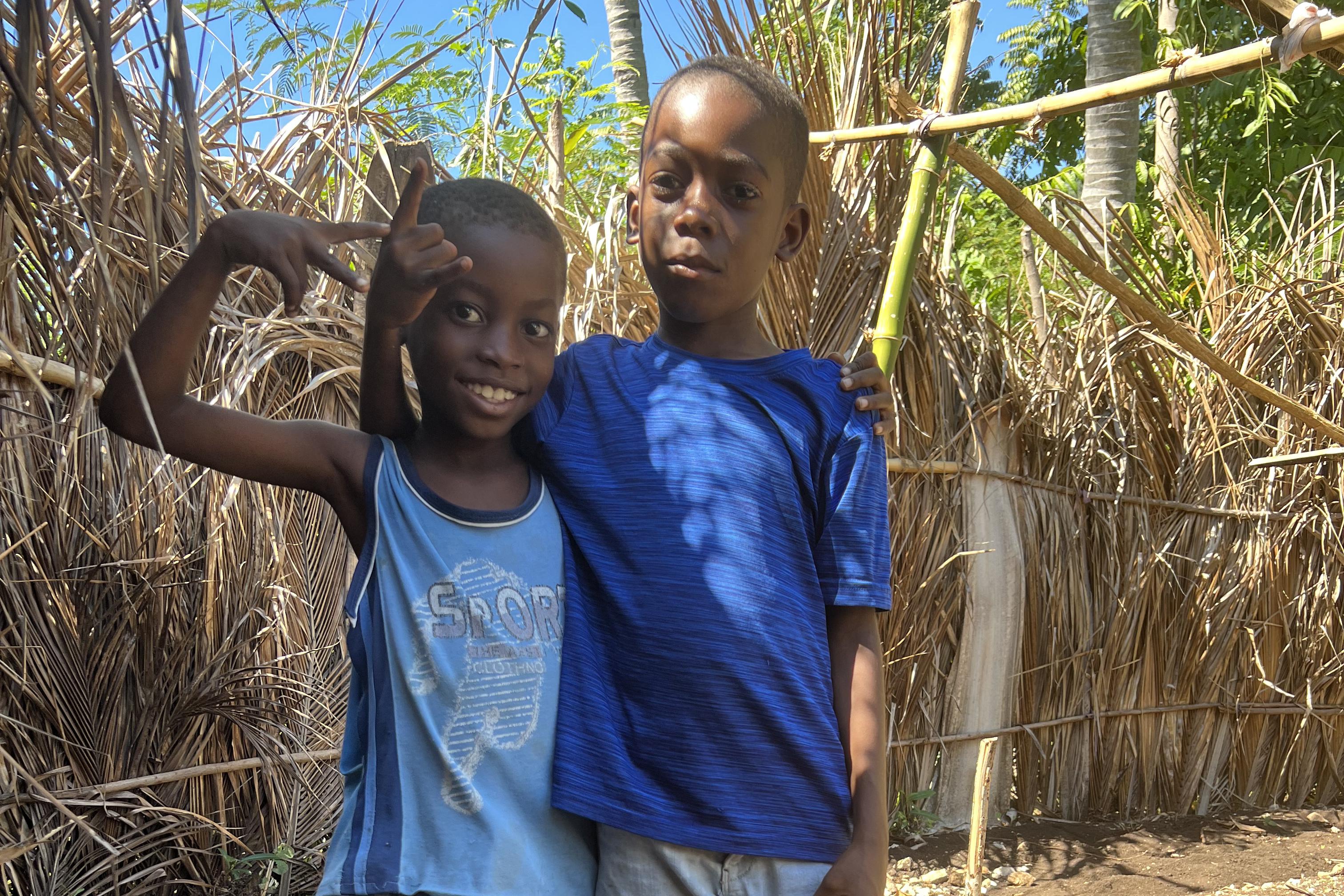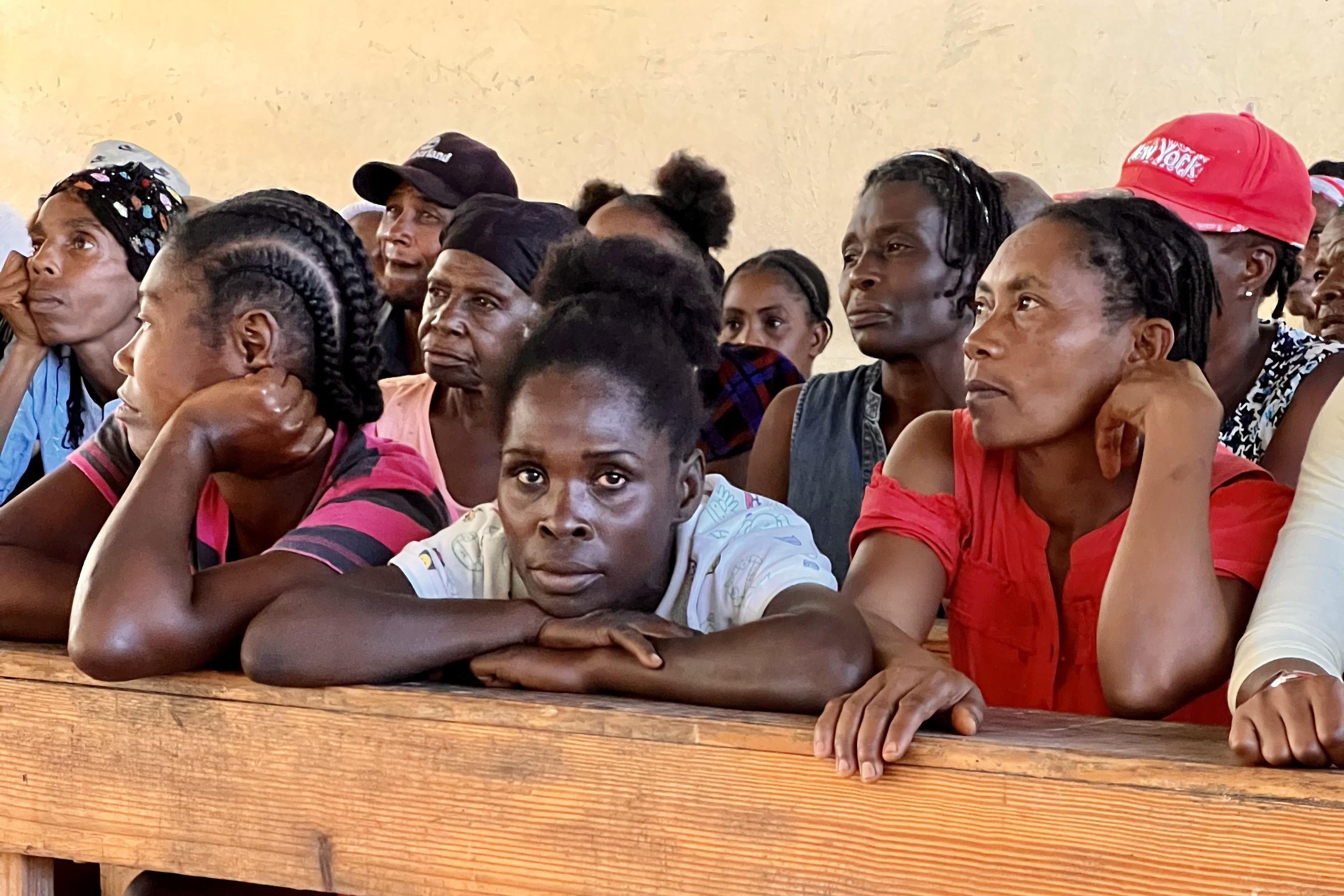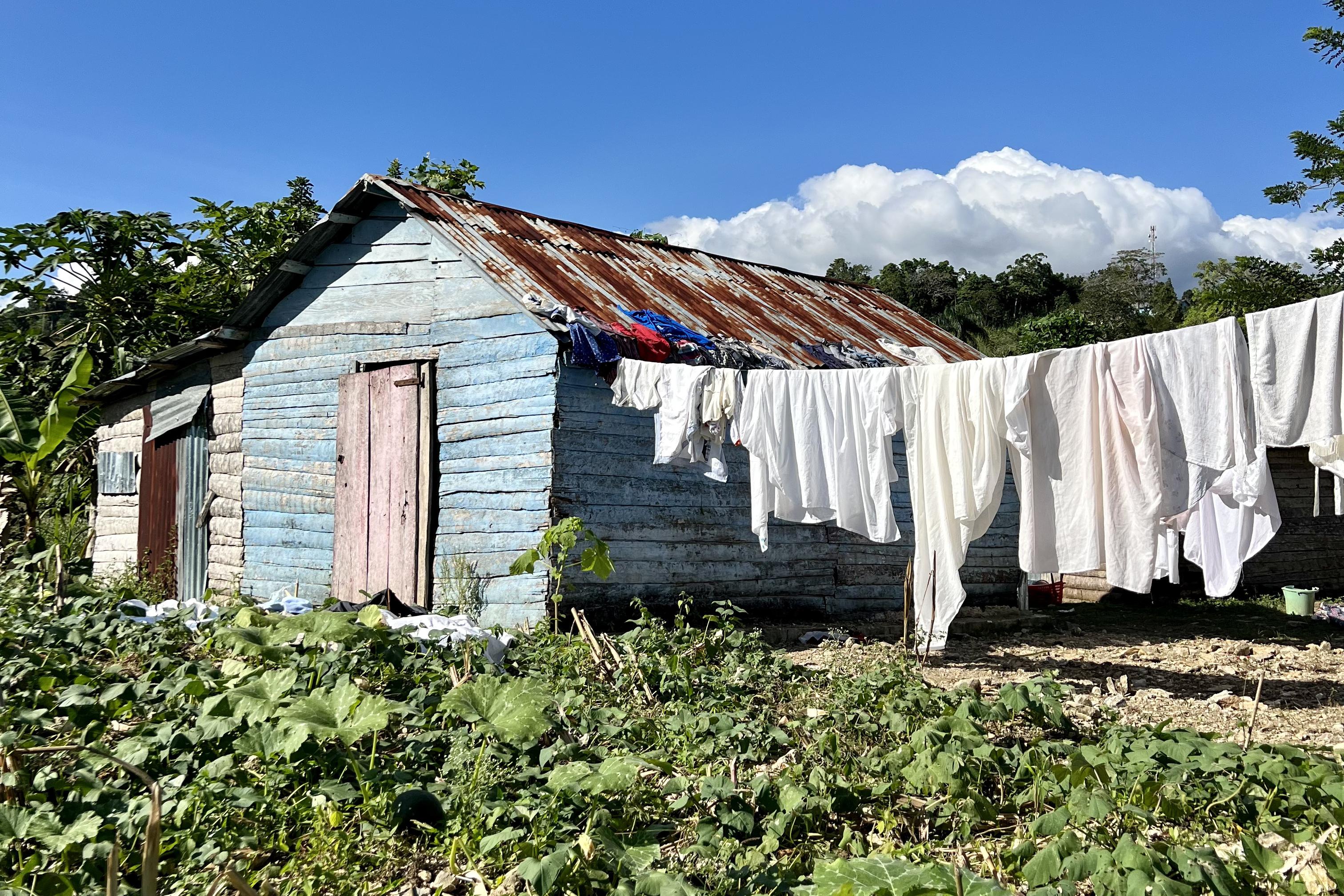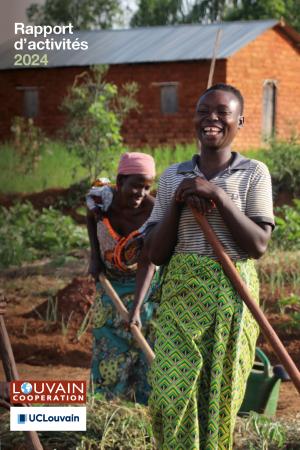
Haiti
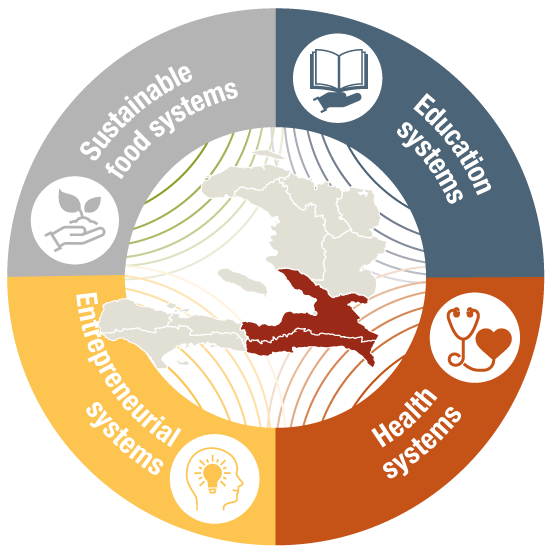
Port-au-Prince
and Jacmel
2
partners
2.400
people affected in 2024
Louvain Coopération in Haiti
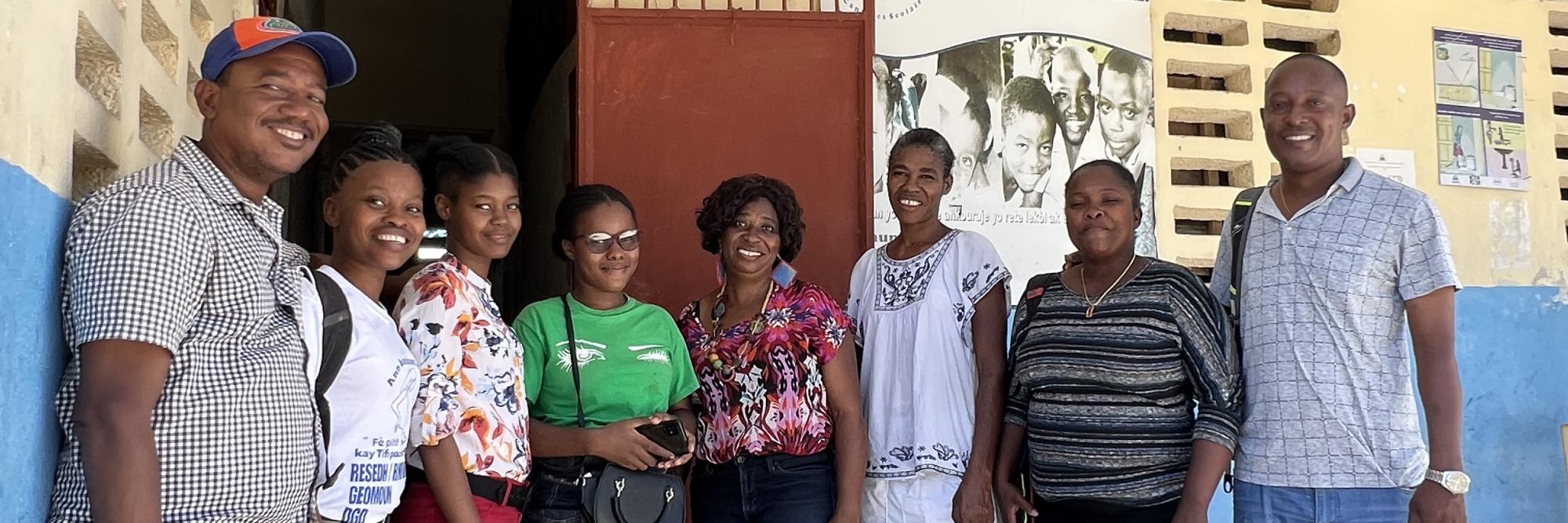
Partners and donors
Partners
- Timkatec
- RESEDH (Réseau Sud-Est de Défense des Droits Humains)
Donors
- DGD
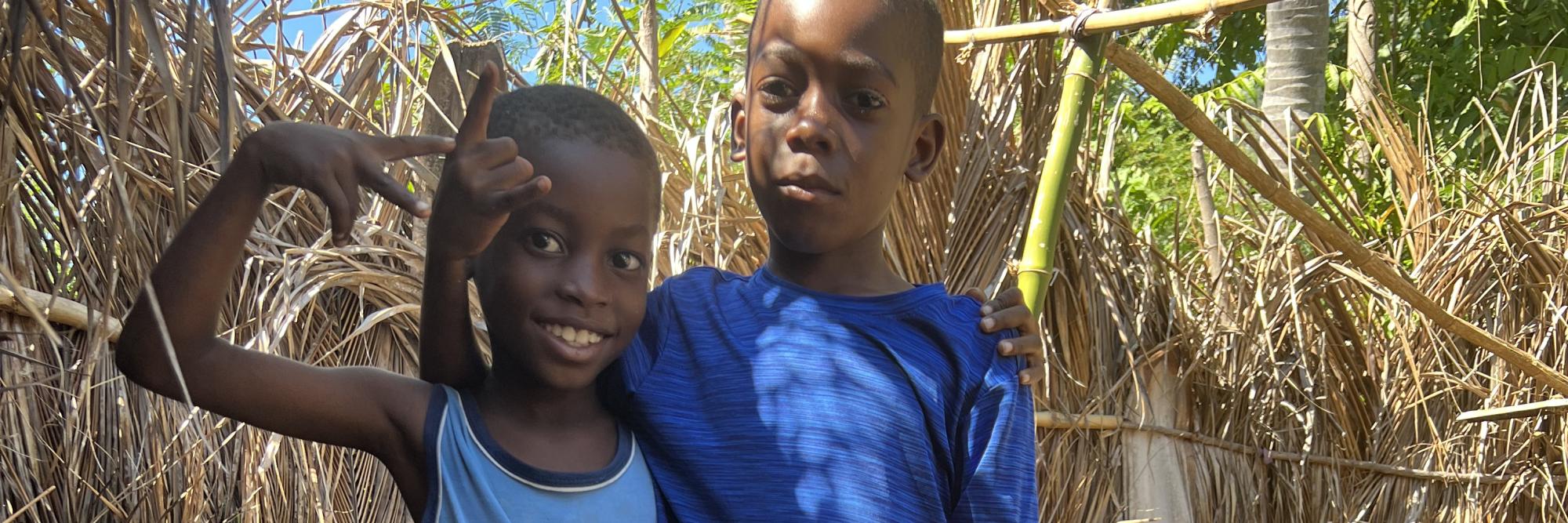
Reception, training and support for vulnerable children in Port-au-Prince
Our objective
Provide 600 vulnerable children and young people in Port-au-Prince with quality education, vocational training and psychosocial support, empowering them to leave the streets, escape exploitation and build a dignified and independent future.
Our actions
- Accueil, alimentation, soins et accompagnement de 600 enfants et jeunes dans trois centres gérés par notre partenaire local, Timkatec.
- Remise à niveau et formation de base pour les plus jeunes afin d'obtenir le certificat d’enseignement primaire.
- Formations professionnelles qualifiantes pour les adolescents, dans 5 filières reconnues par l’Institut National de Formation Professionnelle (couture, cuisine, maçonnerie, plomberie et électricité)
- Hébergement d’urgence disponible pour 25 jeunes en situation de rue chaque nuit, avec accompagnement psycho-social.
- Mise en place de passerelles vers la formation et l’emploi pour les jeunes souhaitant sortir définitivement de la rue.
- Ateliers artistiques et culturels : musique, danse, art floral et expression créative, pour renforcer l’estime de soi et favoriser l’épanouissement personnel.
Our impact
This project provides 600 children and young people in Port-au-Prince with a protective environment, quality education and vocational training, offering them real prospects for the future.
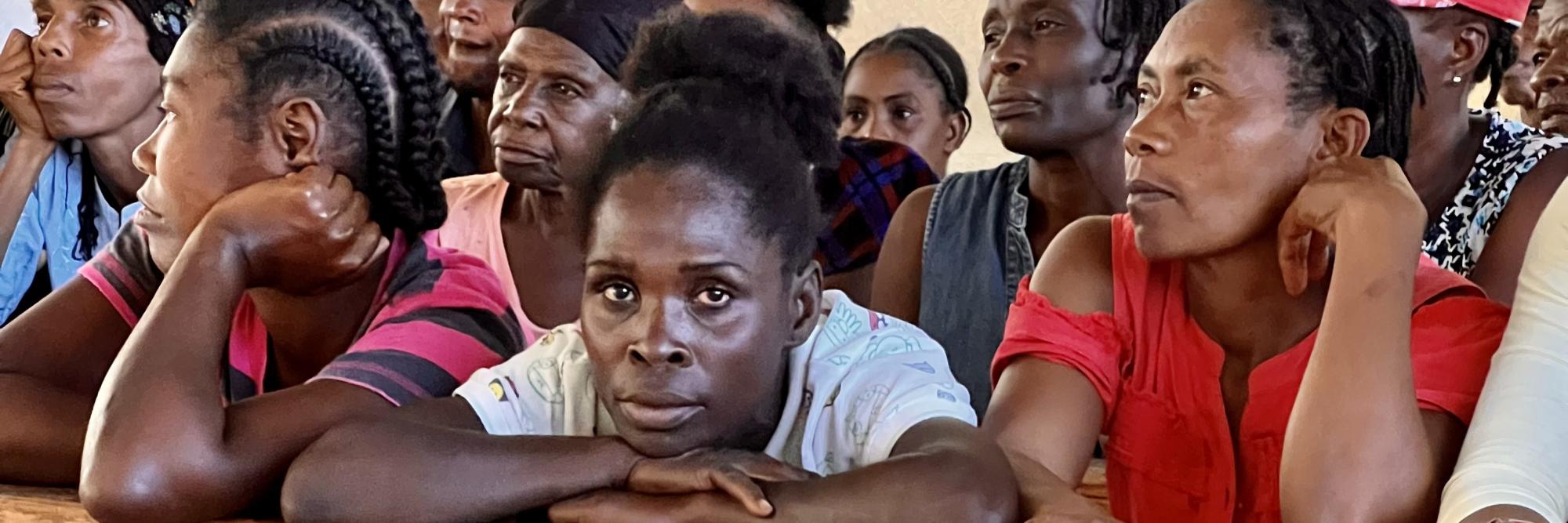
Strengthening protection for children and women in Jacmel (south-east)
Our objective
Promote the emergence of supportive and committed communities in Jacmel, in south-eastern Haiti, in order to ensure the protection of children, equal rights and the empowerment of women, while involving young people and their families in the sustainable development and self-determination of their community.
Our actions
- Strengthening engaged communities: creating and supporting community round tables bringing together women's associations, farmers' organisations, traders, schools, religious and political leaders, etc.;
- Supporting active youth clubs in eight municipal districts of Jacmel to strengthen their civic participation and make their voices heard;
- Development and implementation of community action plans co-constructed by communities to promote access to fundamental rights (food, education, health);
- Prevention of risky situations: support for communities where street children and minors in conflict with the law come from.
- Social reintegration of vulnerable children and young people leaving detention, with psychosocial and educational support.
- Support for young single mothers through the integration of women's associations, awareness-raising on human rights and health, and training in project management.
- Awareness-raising and training on children's rights, gender equality, and environmental and climate issues.
- Strengthening local organisations to develop their skills and improve their ability to influence public policy.
- Networking between stakeholders to promote collaboration between associations, local institutions, state authorities, and international partners to maximise the impact of actions.
Our impact
This project strengthens the protection of children and women in Jacmel, develops community solidarity and promotes youth engagement, while supporting sustainable changes for better access to fundamental rights.
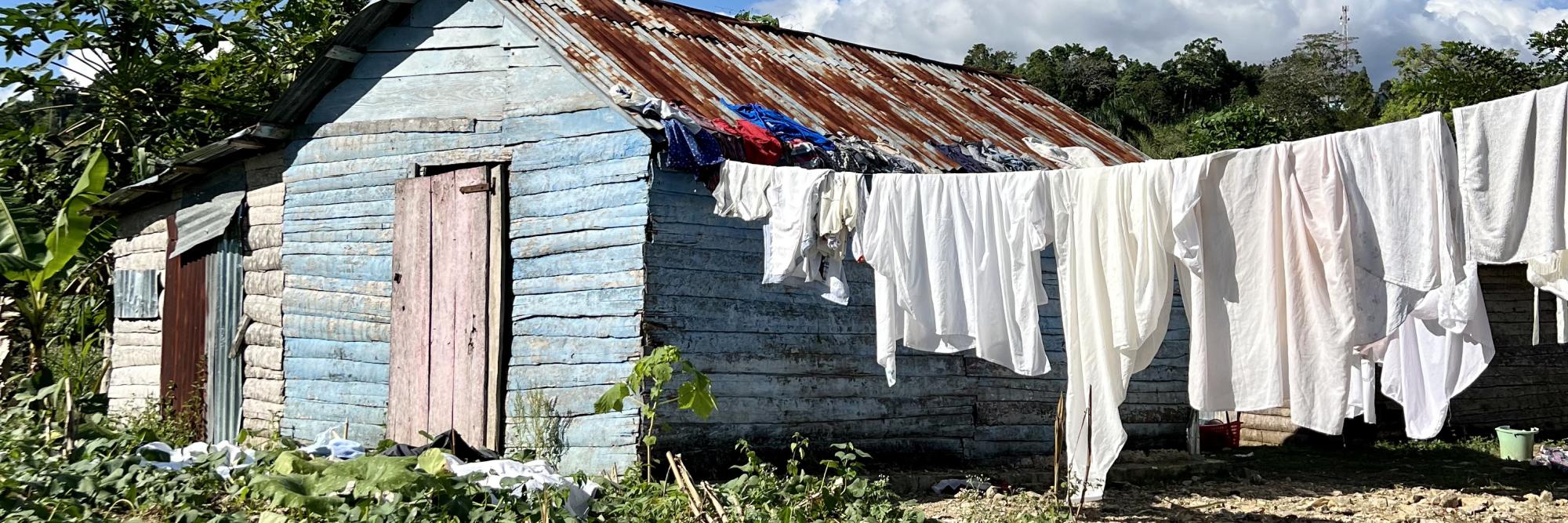
The context of Haiti
Haiti is facing a particularly complex situation, a multidimensional crisis marked by political instability, the deterioration of the rule of law, social inequalities, extreme poverty and constant exposure to natural disasters. These combined challenges severely affect the living conditions of the population, particularly women and children, and compromise their fundamental rights.
Food insecurity
- 40% of the population affected by severe food insecurity;
- 22.7% of children suffer from chronic malnutrition;
- Destructive survival strategies are being implemented: selling seeds and land, taking children out of school, entering into domestic service, etc.
- Difficulties in accessing resources, particularly for women.
Limited access to healthcare
- 58% of households do not use healthcare facilities because of the high cost;
- Lack of social protection: direct payment remains the norm;
- Several alarming indicators: 328 maternal deaths per 100,000 births, compared to an average of 77 in the region (2023); 40 infant deaths per 1,000 births, compared to 14 in the region (2023).
Inequality and precariousness for women
- Low social and political participation due to violence, domestic tasks and socio-cultural norms.
- More than a third of women who are not single have experienced domestic violence (physical, emotional or sexual).
- Lower education levels than men: 23.7% of women have no education, compared to 17.1% of men.
- Frequent early pregnancies (nearly 30% of women), especially in rural areas and among the poorest adolescents.
Vulnerable children's rights
- 1 in 4 children do not live with their biological parents and 1 in 10 are orphans;
- Many children are placed in domestic service;
- Corporal punishment and humiliation are still widely used in families and schools.
An environment vulnerable to disasters
- In 15 years, eight major disasters have affected more than half of the population.
- Consequences: loss of life, destruction of livelihoods, increased poverty, exclusion from basic social services.
Contact : slaroche@louvaincooperation.org
FAQ
Food security depends as much on availability as on income stability and nutritional practices.
Reducing post-harvest losses (drying, airtight storage, sorting) and expanding small irrigated areas mitigate the effects of hazards. Home and school gardens, diversification (legumes, leafy vegetables) and nutrition education improve the quality of diets in the long term, particularly for children and women.
Careers are often disrupted by shocks; the challenge is to align training provision with concrete job opportunities.
Short, certified curricula, developed in collaboration with local employers in the fields of agro-processing, maintenance, renewable energies, construction (including earthquake-resistant reinforcement) and logistics, are yielding visible results.
Work-study programmes, training workshops and adult literacy programmes — with attention to the languages of instruction — promote integration and mobility.
How is the Haitian population distributed and what are the territorial effects of this distribution?
The population is young and concentrated around the Port-au-Prince metropolitan area, with regional centres such as Cap-Haïtien, Gonaïves, Les Cayes and Jérémie.
Urbanisation has occurred rapidly, often faster than services (water, sanitation, roads), while vast rural mountain areas remain isolated.
The territory is structured by mountain ranges (Massifs de la Hotte, de la Selle, des Matheux, du Nord), fertile plains (Artibonite, Cul-de-Sac, Plaine du Nord) and two coastal peninsulas.
The slopes are ideal for agroforestry and require anti-erosion measures; the plains are better suited to irrigation and market gardening; the coastal areas support fishing and small ports.
In terms of mobility, it is mainly secondary roads and service tracks that determine access to markets.
- Mountains → agroforestry, terraces, risk of landslides.
- Plains → irrigation (rice in Artibonite), food/seed crops.
- Coastal areas → small-scale fishing, small port infrastructure.
The economy combines a highly dynamic informal sector, services, small-scale agro-processing and export-oriented assembly activities (particularly textiles).
Remittances from the diaspora support consumption and part of domestic investment.

